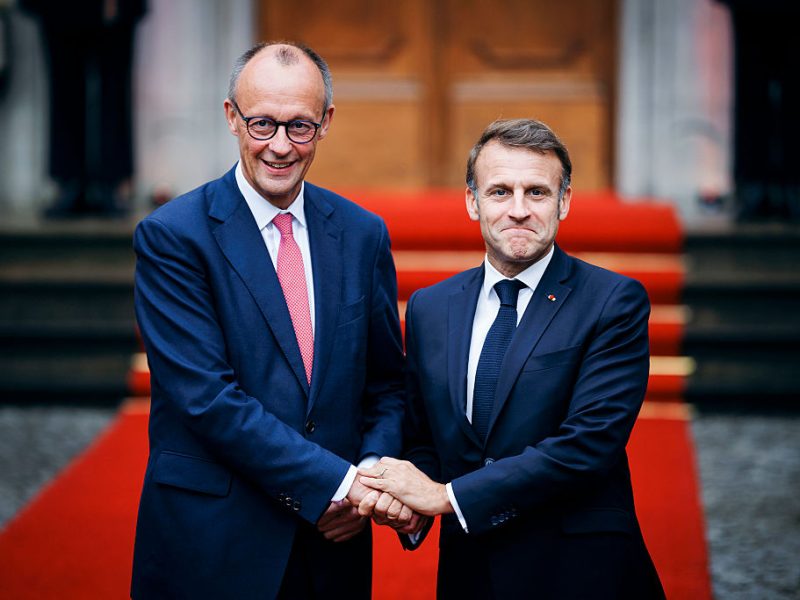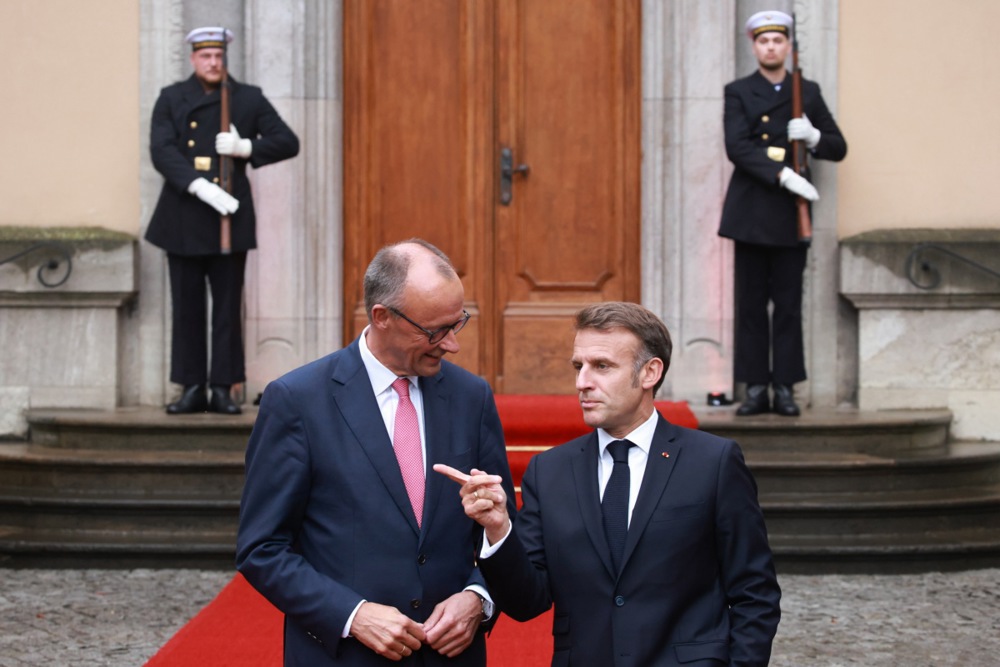Paris and Berlin will work out differences in building a sixth generation fighter, the French Elysée palace insisted, days before a meeting between Emmanuel Macron and German Chancellor Friedrich Merz.
There is “shared optimism” that tensions between the industry players delivering Europe’s Future Combat Air System (FCAS), will be resolved, an Elysée source said on Monday ahead of a high-stakes meeting between the two governments.
Macron, Merz and their respective defence ministers are meeting on Thursday in the southern French town of Toulon, after months of public bickering between their respective industry champions Dassault and Airbus on who’s taking the lead on developing the core of FCAS: its fighter.
“There is no plan B” but to make the FCAS with both Paris and Berlin in the lead, the source said.
“Temporary difficulties must be addressed,” the source added.
While Paris and Berlin were initially expected to indicate a way forward for the major development project this week, that goalpost seems to have moved further down the road.
The FCAS programme and its land equivalent, the next-gen battle tank also known as MGCS, “will come to fruition according to modalities which experts are currently reviewing and ministers will take the decision,” the Elysée source said.
The issue will be settled by the end of the year, both countries promised in July.
The division of work is the main issue that France’s Dassault and Germany’s Airbus have publicly fought over in the past few months, especially after Dassault reportedly asked to take the lead on 60% of the project and said it could do it all alone if needed.
France and Germany, with Spain, started work on the six generation fighter years ago. The project is now at a crossroads, as it moves from the planning phase towards building a prototype of the fighter jet.
(cp)

